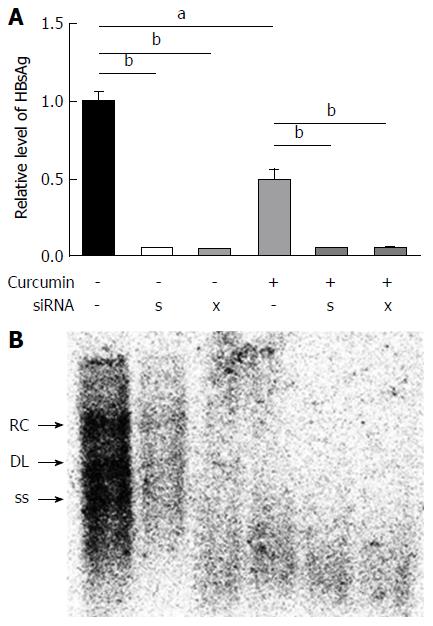Copyright
©The Author(s) 2017.
World J Gastroenterol. Sep 14, 2017; 23(34): 6252-6260
Published online Sep 14, 2017. doi: 10.3748/wjg.v23.i34.6252
Published online Sep 14, 2017. doi: 10.3748/wjg.v23.i34.6252
Figure 5 siRNAs against hepatitis B virus enhance the inhibitory effects of curcumin.
HepG2.215 cells were transfected with 20 nmol/L siRNAs or negative control (HC) siRNA and were treated with 20 μmol/L curcumin or dimethyl sulphoxide for the next 2 d. HBsAg in cell culture supernatants and intracellular HBV replicative intermediates were detected by ELISA (A) and Southern blot analysis (B), respectively. All experiments were repeated at least three times; ELISA was performed in duplicate. aP < 0.05; bP < 0.01. HBV: Hepatitis B virus; HBsAg: HBV surface antigen.
- Citation: Wei ZQ, Zhang YH, Ke CZ, Chen HX, Ren P, He YL, Hu P, Ma DQ, Luo J, Meng ZJ. Curcumin inhibits hepatitis B virus infection by down-regulating cccDNA-bound histone acetylation. World J Gastroenterol 2017; 23(34): 6252-6260
- URL: https://www.wjgnet.com/1007-9327/full/v23/i34/6252.htm
- DOI: https://dx.doi.org/10.3748/wjg.v23.i34.6252









